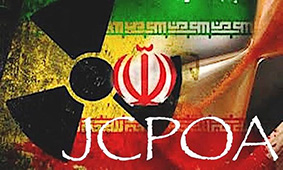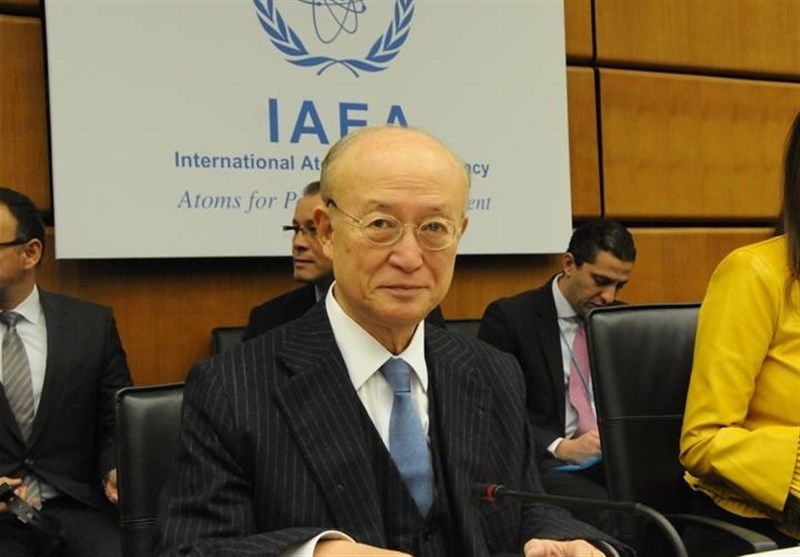
UN Nuclear Chief Reconfirms Iran’s Compliance with JCPOA

In an interview with CBS News, Amano confirmed that Iran is sticking to the 2015 nuclear deal.
"I don't see activities that are contrary to the Iran nuclear agreement ... but we need to monitor very, very carefully," Amano said.
Amano added that the agency's "inspectors have had access to all the sites and locations in Iran which they needed to visit."
"So far they are implementing" the agreement, Amano stressed.
He also noted that the US is "a very important country, so, of course, it (the US withdrawal) has impact."
In May 2018, US President Donald Trump pulled his country out of the JCPOA, which was achieved in Vienna in 2015 after years of negotiations among Iran and the Group 5+1 (Russia, China, the US, Britain, France and Germany).
Elsewhere in the interview, Amano said the additional protocol is, "a powerful verification tool that gives the Agency broader access to information about all parts of a state's nuclear fuel cycle. It also gives our inspectors greater access to sites and locations, in some cases with as little as two hours' notice."
"Not only Saudi Arabia, but I am asking all the countries to implement the additional protocol. This would increase confidence," Amano underlined.
He further explained that nuclear weapons have become easier to get than ever before.
"In general terms, the technology to develop nuclear weapons is an old one, dating back 70 years, and after that lots of progress has been made in technology," Amano said. "You can get the information, you can get the material, the education. It's available."
He then warned that "the current environment" makes it "easier for countries to proliferate."
"That is one of the reasons why we have to strengthen our activities to prevent the proliferation of nuclear weapons and verify that all the material and equipment stay for a peaceful purpose," he said.
He said that over the last decade North Korea's "nuclear program has significantly expanded."
"Over the past year, activities at some facilities continued or developed further," Amano said.
He emphasized that the IAEA "is the only international organization that can verify and monitor denuclearization in an impartial, independent and objective manner.”
He concluded that the IAEA was ready and able to send a team of inspectors into North Korea "within weeks," if an agreement were to be reached.



Trump weighs using $2 billion in CHIPS Act funding for critical minerals

Codelco cuts 2025 copper forecast after El Teniente mine collapse

Electra converts debt, launches $30M raise to jumpstart stalled cobalt refinery

Barrick’s Reko Diq in line for $410M ADB backing

Abcourt readies Sleeping Giant mill to pour first gold since 2014

Nevada army depot to serve as base for first US strategic minerals stockpile

SQM boosts lithium supply plans as prices flick higher

Viridis unveils 200Mt initial reserve for Brazil rare earth project

Tailings could meet much of US critical mineral demand – study

Kyrgyzstan kicks off underground gold mining at Kumtor

Kyrgyzstan kicks off underground gold mining at Kumtor

KoBold Metals granted lithium exploration rights in Congo

Freeport Indonesia to wrap up Gresik plant repairs by early September

Energy Fuels soars on Vulcan Elements partnership

Northern Dynasty sticks to proposal in battle to lift Pebble mine veto

Giustra-backed mining firm teams up with informal miners in Colombia

Critical Metals signs agreement to supply rare earth to US government-funded facility

China extends rare earth controls to imported material

Galan Lithium proceeds with $13M financing for Argentina project

Kyrgyzstan kicks off underground gold mining at Kumtor

Freeport Indonesia to wrap up Gresik plant repairs by early September

Energy Fuels soars on Vulcan Elements partnership

Northern Dynasty sticks to proposal in battle to lift Pebble mine veto

Giustra-backed mining firm teams up with informal miners in Colombia

Critical Metals signs agreement to supply rare earth to US government-funded facility

China extends rare earth controls to imported material

Galan Lithium proceeds with $13M financing for Argentina project

Silver price touches $39 as market weighs rate cut outlook

















